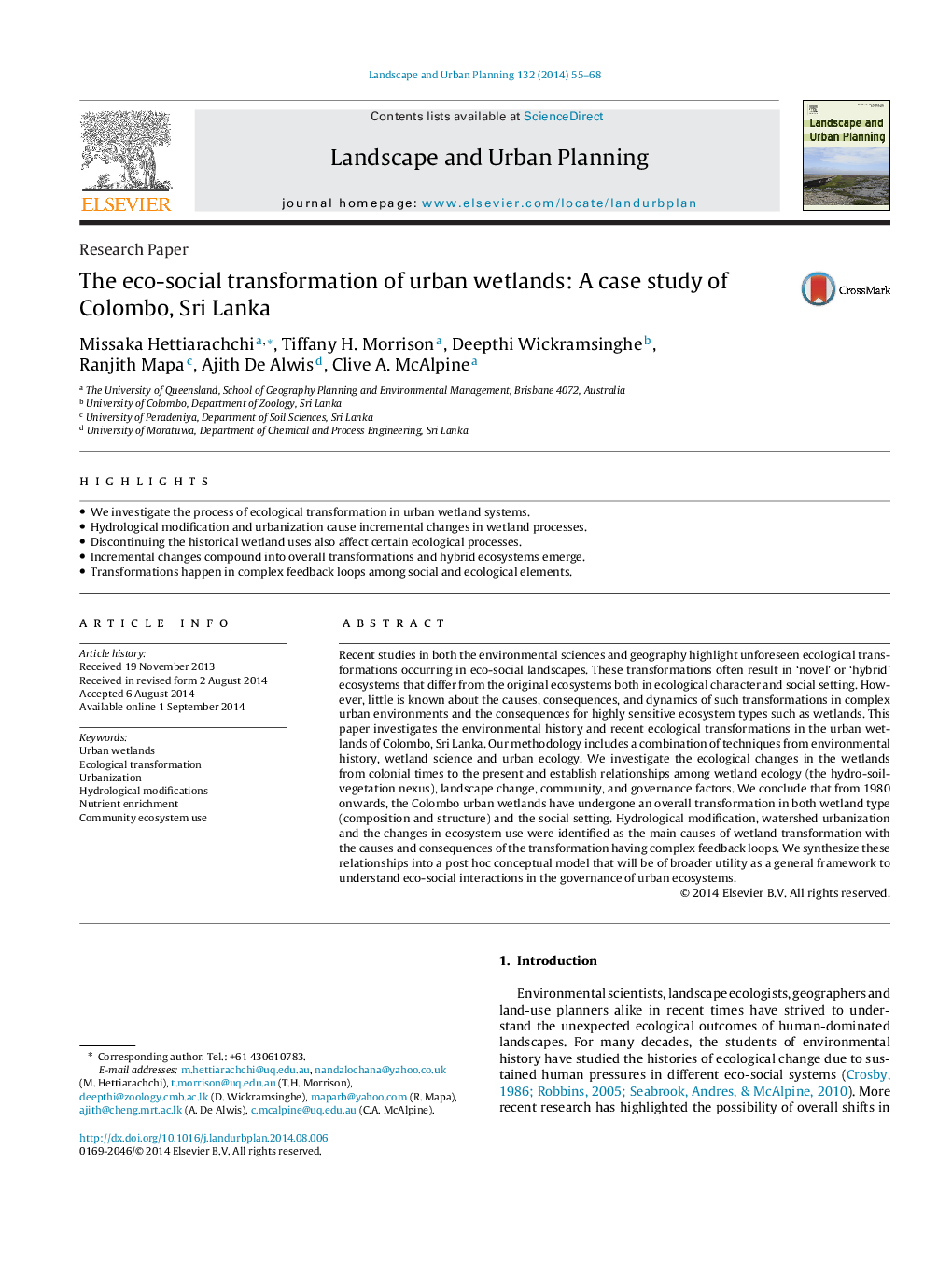| Article ID | Journal | Published Year | Pages | File Type |
|---|---|---|---|---|
| 7461274 | Landscape and Urban Planning | 2014 | 14 Pages |
Abstract
Recent studies in both the environmental sciences and geography highlight unforeseen ecological transformations occurring in eco-social landscapes. These transformations often result in 'novel' or 'hybrid' ecosystems that differ from the original ecosystems both in ecological character and social setting. However, little is known about the causes, consequences, and dynamics of such transformations in complex urban environments and the consequences for highly sensitive ecosystem types such as wetlands. This paper investigates the environmental history and recent ecological transformations in the urban wetlands of Colombo, Sri Lanka. Our methodology includes a combination of techniques from environmental history, wetland science and urban ecology. We investigate the ecological changes in the wetlands from colonial times to the present and establish relationships among wetland ecology (the hydro-soil-vegetation nexus), landscape change, community, and governance factors. We conclude that from 1980 onwards, the Colombo urban wetlands have undergone an overall transformation in both wetland type (composition and structure) and the social setting. Hydrological modification, watershed urbanization and the changes in ecosystem use were identified as the main causes of wetland transformation with the causes and consequences of the transformation having complex feedback loops. We synthesize these relationships into a post hoc conceptual model that will be of broader utility as a general framework to understand eco-social interactions in the governance of urban ecosystems.
Related Topics
Life Sciences
Agricultural and Biological Sciences
Ecology, Evolution, Behavior and Systematics
Authors
Missaka Hettiarachchi, Tiffany H. Morrison, Deepthi Wickramsinghe, Ranjith Mapa, Ajith De Alwis, Clive A. McAlpine,
